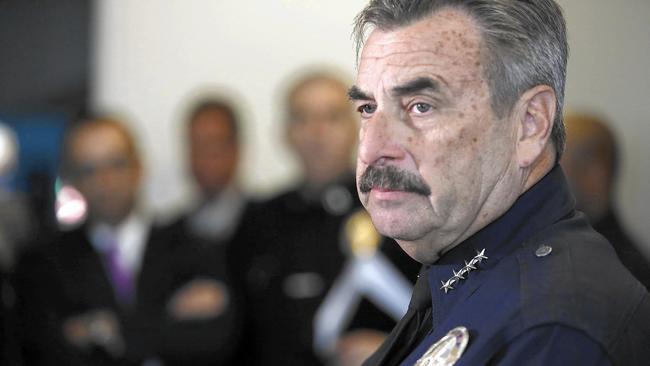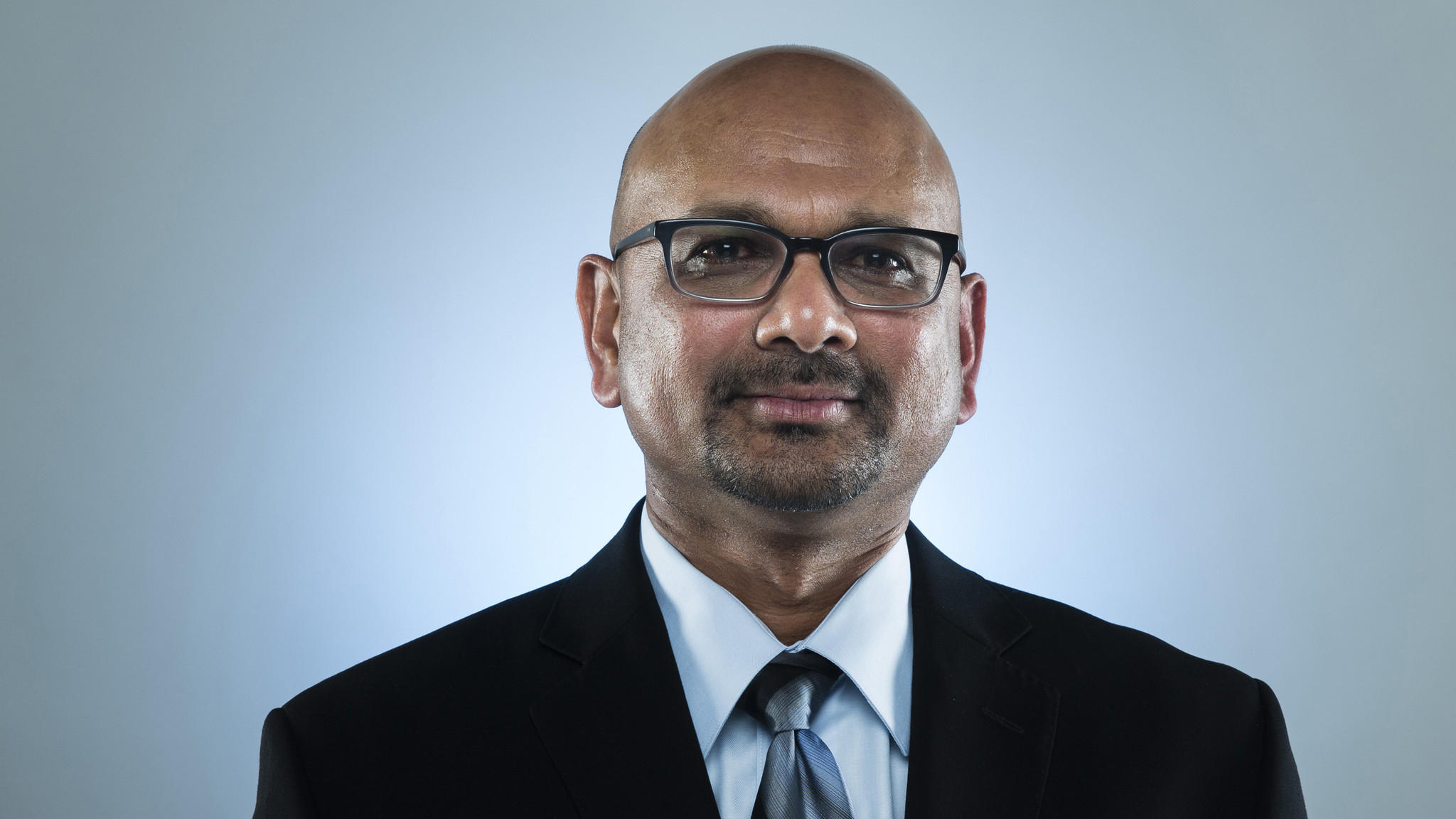Thanks to my lawsuit, we know that the LAPD asked the LA Times to fire me as a favor to the cops because I was constantly criticizing them and their police chief. But, as Sartre said, individual actions require accountability. In that spirit, here’s a rogues gallery of the principal players and their roles in the conspiracy behind my firing last July.
LAPD Police Chief Charlie Beck

Until a few months ago, when the LA Times was forced to submit affidavits in their defense to my lawsuit for wrongful termination and defamation, Beck’s role was unknown. In multiple articles, the Times was too cute by half, claiming that they had received the sketchy audiotape and the dubious documents from the LAPD. As the following evidence shows, however, the police chief took a break from fighting crime and beating up black people to walk over to the LA Times to complain about my cartoon and accompanying blog in which I described having been roughed up by an LAPD officer who arrested me for jaywalking in 2001:

They say that law-enforcement officers like him work in order to protect our freedoms. But Beck obviously never heard of the First Amendment. The First Amendment doesn’t really protect free-speech as broadly as similar statutes do in other countries, but the one thing that it does do is prevent government agencies – like the LAPD – from interfering with journalism and criticism. Beck hates the Constitution; he is un-American.
If there’s any justice, Beck will soon resign. He and the Times are claiming that he raided the LAPD evidence locker and gave the material to the paper. If that’s true, he should go. However, it looks like he’s lying. Most likely, he got the stuff from the arresting officer’s personal files. Which means that he lied about the stuff being official evidence. In that case too, he should go.
LA Times Ex-Publisher Austin Beutner

As far as I can tell, Beutner is even more stupid than he is evil. And he is evil.
The billionaire who made his bucks raping the former Soviet Union in the 1990s is the guy at the Times who took the meeting with the police chief about little old me. The LAPD police union, the LAPPL, was a major political ally for him, so he kind of had to. However, he also should’ve thought about journalistic ethics. The last thing that the publisher of the paper that covers the police should be doing is hanging out with them. And the very last thing that he should be doing is hanging out with a guy who is asking him to fire one of the cops’ critics.
The reason I say he’s stupid is because it never occurred to him that he might be getting played by the police chief. He took Beck at face value. He wasn’t careful. He just accepted the evidence the cops gave him, handed it over to his editorial page editor, and ordered him to fire me. At least that’s how it looks right now. We’ll learn more during the discovery phase of the pre-trial.
If he’d been a journalist, or knew anything about journalism, or had any common sense, it might’ve occurred to him that the chief of police had a vested interest in getting rid of a cartoonist who keeps making fun of the chief of police. Of course, that would’ve also interfered with his own interest. After all, he was too cozy with the police to say no.
The paper let him go after I was fired.
LA Times Editorial Page Editor Nick Goldberg

Goldberg, the editor of the editorial pages, was a guy I barely had anything to do with. He wasn’t my usual editor. But he supervised my usual editors. He got the order to fire me from Beutner.
Now back in the day, when I started out, if a publisher had asked an editor to do something like this, to fire someone on the flimsiest of evidence, evidence that hadn’t been properly evaluated or analyzed or authenticated, evidence that really didn’t show much at all, said editor would have told said publisher to fuck himself. Probably would’ve resigned. But that’s not what Goldberg did.
Like many newspapermen nowadays, Goldberg was terrified. Most of his colleagues have been laid off. All he wanted to do was to keep his head down long enough to retire. So he was a wimp. When Beutner ordered him to let me go, he said yes sir. Without letting me talk to my editors. And not only that. He signed my death warrant. He signed the first article, the “a note to readers” intended to end my journalistic career.
Within days, Goldberg had in his hand solid proof that everything he had written was untrue. That he had lied for the cops. Even then, he kept quiet. No retraction. No resignation letter. He’s still there, drawing a six-figure salary despite his utter lack of decency.
LA Times Readers Representative Deirdre Edgar

Deirdre Edgar seems like a relatively obscure figure in this whole fiasco. Actually, she’s very important. She wrote the second hit piece against me, the one that came out three weeks after the paper found out that I have been telling the truth and that the cops have been lying about me.
Ironically, she’s the so-called “Readers representative” – the equivalent of an ombudsman at other newspapers. She’s the person who supposed to stand up for journalistic ethics. In fact, when the paper rewrote their ethical guidelines back in 2014, she got the byline.
The irony is that among other things, those ethical guidelines require reporters to give equal time to the subjects of critical articles in order to respond. She didn’t do that. Never called. Never wrote. The same guidelines say that the reporter should meet in person with the subject of a critical article. She didn’t try to do that. There’s other stuff too. Like, you’re not supposed to willfully lie about the subject of an article. Which she did.
LA Times Editor/Publisher Davan Maharaj

Maharaj was the editor-in-chief when all this went down last year. His role at the time remains obscure. Tribune Publishing decided to name him the new publisher after they fired Beutner.
Whatever his role last summer, he has been at the helm since early fall 2015. All the time, he has allowed those two libelous articles about me to remain on the newspaper’s website. This, of course, despite the fact that the information inside them is false and everyone knows they’re false. If this guy had an ounce of integrity, he would resign.
Support free speech! Fight the LA Times’ demand that I pay them $75,000: gofundme.com/tedrall




















